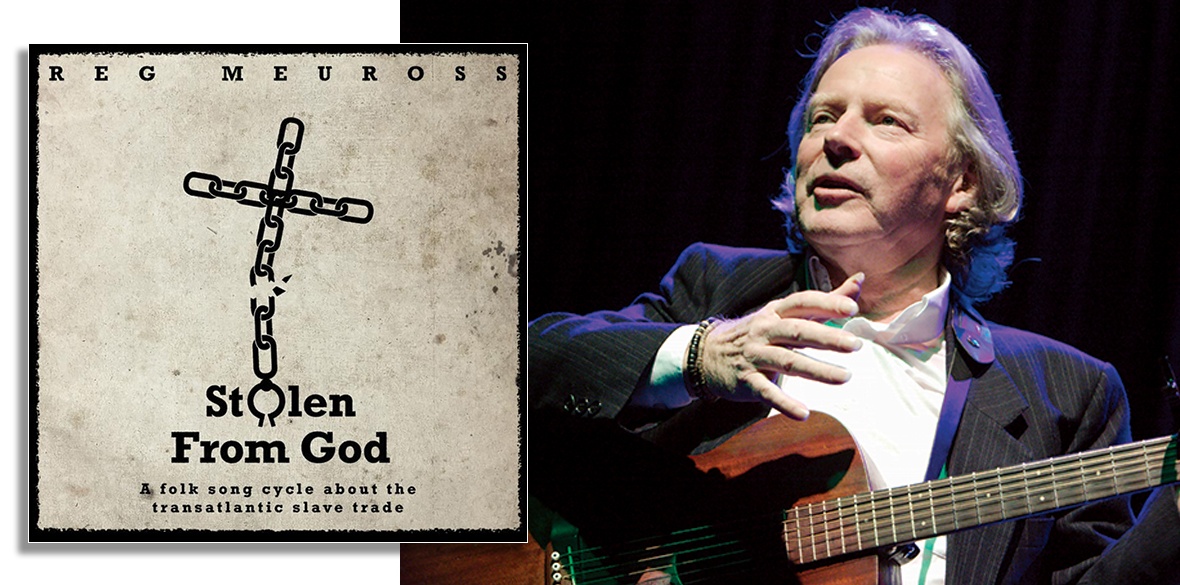This is the last article you can read this month
You can read more article this month
You can read more articles this month
Sorry your limit is up for this month
Reset on:
Please help support the Morning Star by subscribing here
Reg Meuross
Stolen From God, Hatsongs Records
REG MEUROSS is a long-standing folk singer and songwriter whose work often involves social and political themes.
Stolen From God is his 15th album and is the culmination of four years research into the legacy of the transatlantic slave trade in the 17th and 18th century, particularly in the south-west of England.
The album is a song cycle telling stories of the impact of the slave trade from different perspectives and detailing the extent of how much British institutions from church to country estates benefited.
With support from Sengalese kora master Jali Fily Cissokho and concertina player Cohen Braithwaite-Kilcoyne from the brilliant young folk band Granny’s Attic, the album could not be timelier in a context where right-wing historians and newspaper columnists constantly praise Britain’s imperial legacy.
The opening track The Jesus of Lubeck tells the story of the first slave ship sailing off and seems like a pleasant seafaring song until it becomes clear of the trade they are engaged in “endorsed by God and royalty.”
There are songs from the perspective of the slave trader seeking a religious justification for the trade (The Way of Cain) or a business and profiteering one (I Bought Myself an African) alongside the title track from the perspective of those transported.
But in England No More with Braithwaite-Kilcoyne leading on vocals we also get the perspective of the ordinary sailors on board, many of them poor and homeless victims of the press gangs with no rights as free men themselves.
There are true stories of former slaves like Olaudah Equiano in Stole Away who later became a writer and abolitionist. Bridgewater also tells of the attempts of abolitionists in Somerset in 1785 to petition against the trade “though it may be bad for trade you know it’s right.”
Perhaps the most powerful song however is Good Morning Colston, about the Bristol slave trader Edward Colston whose Royal Africa Company enslaved an estimated 84,000 people.
“No statue or memorial can hide your history” is a fitting response to media commentators more outraged at the toppling of a slave trader’s statue than the trade itself.
An album which both moves and challenges the listener and a reminder that with the current government and media attacks on Black Lives Matter we are still having to fight the ideology which gave rise to the trade depicted in these songs.










